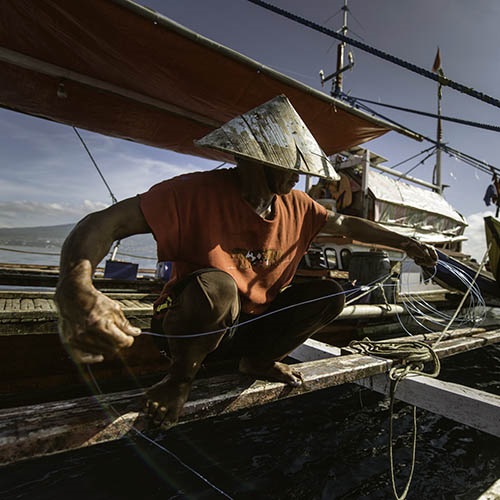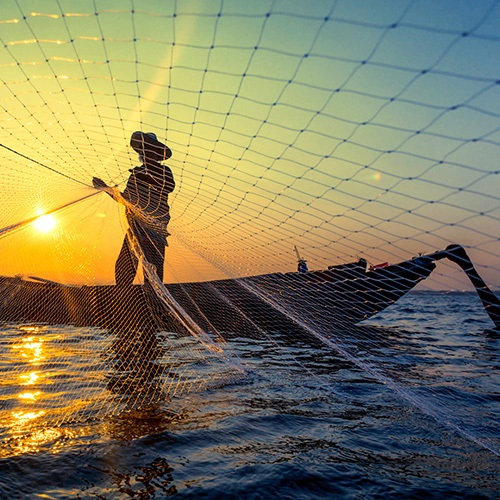Pronatura Noroeste and The Pacific Red Sea Urchin Fishery
Amount awarded: £50,000
This project is supporting the Mexican Red Sea Urchin fishery to become MSC certified by January 2025. Significant progress towards sustainability has been made since the establishment of a Fishery Improvement Project (FIP) in January 2020.
A pre-assessment against the MSC Fisheries Standard showed the fishery would pass most principles at the minimum level, but would likely incur several conditions of certification. Conditions are improvements that must be implemented before the end of a certification period (usually five years).
Red sea urchins are mainly harvested by divers using hookah-type diving gear. The gear uses an air pump attached to a boat for divers to breathe through. The divers use hooks to dislodge the sea urchins – it's a highly selective method. The gonads of the urchins are sold in Asian markets, particularly China, Hong Kong and Taiwan as well as the U.S.A and cost around US$25-30 per kilogram.
New stock assessment shows sea urchin stock healthy
Since receiving funding, a new stock assessment has been published in a peer-review scientific paper, from a PhD thesis. The paper shows that generally the stock is in good health but there are some fishing banks subject to over-exploitation that require rebuilding actions. The results of the study are also being used to develop a harvest strategy which will provide the fishery with a management tool to ensure the stock remains healthy.
In areas where stock is over-exploited, a stock recovery plan is close to completion, alongside a new monitoring protocol proposed to the National Fisheries Institute (INAPESCA). An overabundance of sea urchins can disrupt ecological balance, and where there is a lack of natural predators like sea otters, fishing can help regulate the population number of sea urchin. Likewise, where areas are over-exploited, rebuilding efforts are being considered including: relocation of sea urchins, replanting of macroalgae, protecting the largest individuals or stopping catches all together. A combination of strategies has been proposed to provide best results.
Engaging fishers in rebuilding activities
The Red Sea Urchin Fishery in Baja California is one of two fisheries receiving funding alongside conservation organisation Pronatura Noroeste. Pronatura Noroeste is a strategic local partner in the MSC’s Fish for Good Mexico project.
A Memorandum of Understanding (MoU) was signed in January 2020 by 16 fishers groups, three government agencies, researchers and Pronatura, helping to ensure the longevity and progress of this FIP. The fishery's progress has been verified through the In-Transition to MSC program, an eligibility criterion for the award.
A range of communication materials including videos, posters and brochures to help engage fishers in helping to restore the sea urchin population have been produced.
The fishery has also been featured as a ‘responsible choice’ in the COMEPESCA sustainable seafood national campaign Pesca con Futuro, and a pilot traceability project launched with Go Chain and local producers Eripac. This decision has been driven by a new fisheries law in Japan that will likely require sea urchin imports to be sourced sustainably and traced.
“Overfishing is one of the biggest threats our oceans currently face. It is clearly a lose-lose-lose situation - the fishers lose income, the environment loses functionality, and consumers lose access to delicious and healthy food. Actions to revert overfishing including effective management and tackling illegal fishing are key to heal our oceans. Efforts by the MSC’s Ocean Stewardship Fund and Pronatura Noroeste are essential to restore the ocean and combat poverty.”
Pronatura Noroeste A.C.
Find out more

Our impact projects
Discover projects supported through the Ocean Stewardship Fund that are helping to grow sustainable fishing worldwide.

The Ocean Stewardship Fund
The Ocean Stewardship Fund offers grants to both MSC certified sustainable fisheries and improving fisheries.
